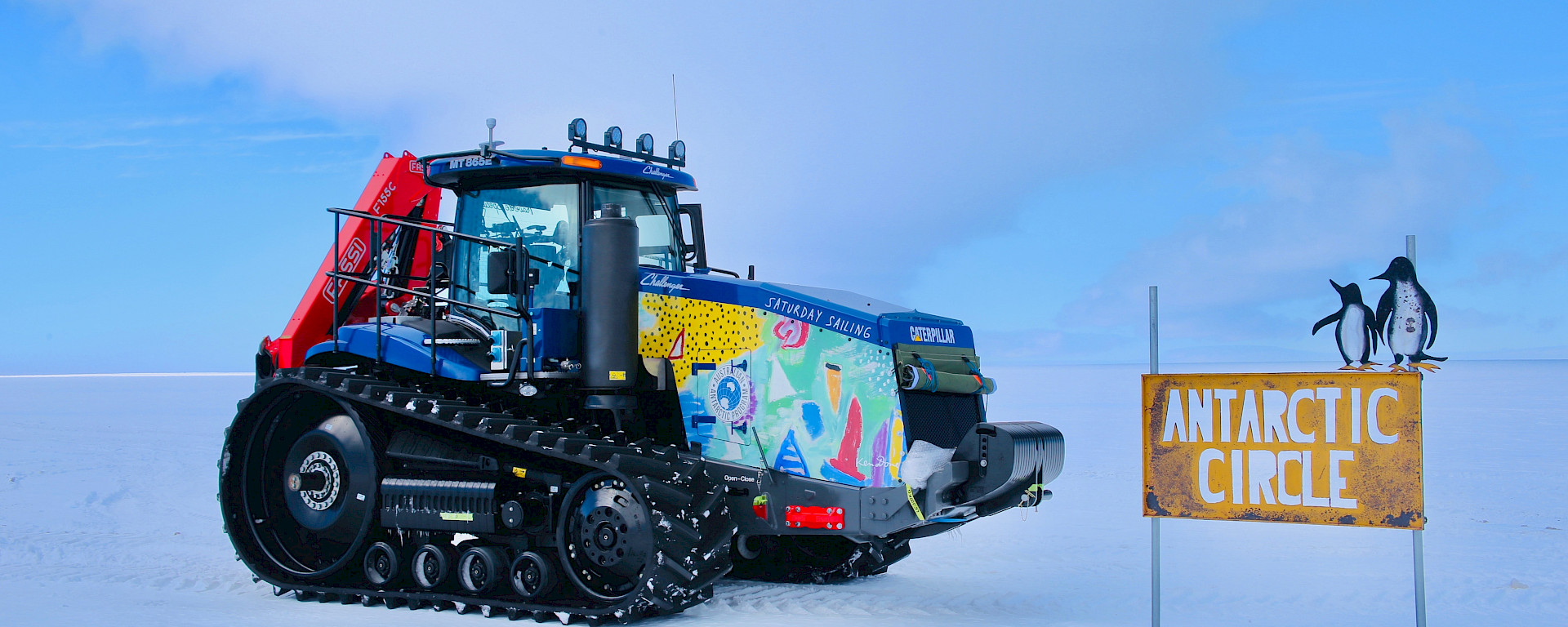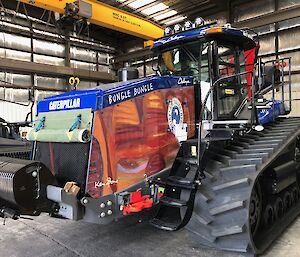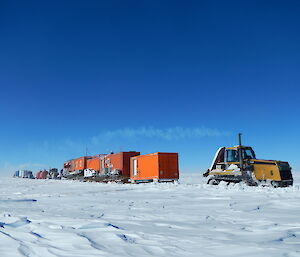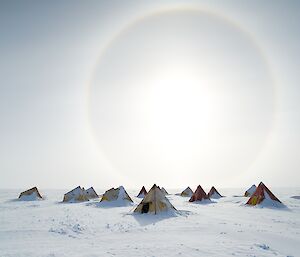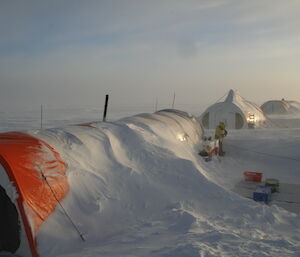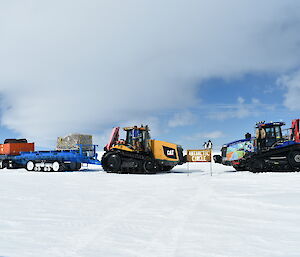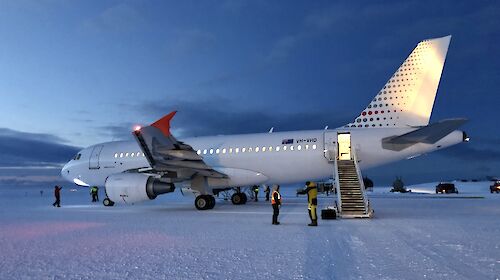A Tasmanian engineering company has been awarded a multi-million dollar contract to build Antarctic sleds, which will be used by Australian expeditions searching for the oldest ice on Earth.
Elphinstone Engineering, based in Triabunna, has won a $3.9 million dollar tender to design and construct 28 sleds for the Australian Antarctic Program.
Traverse Project Manager, Anthony Hull, said the sleds will be towed 1100 kilometres inland from Australia’s Casey research station.
“The sleds will carry a mobile station including equipment, accommodation vans, science labs and fuel containers,” Anthony Hull said.
“Once the traverse train, including tractors and snow groomers, reaches the site near Dome C the team will set up an ice core drilling camp.
“Scientists will then spend 4 or 5 summers drilling 3000 metres into the ice cap to collect ice cores containing tiny bubbles of trapped atmospheric gases, this will provide a snapshot of past climate.”
The fleet of sleds, including five at 12.5 metres and 23 at 7.5 metres, will be built over the next 8 months.
Owner of Elphinstone Engineering, Graeme Elphinstone, said the sleds are specially designed for the harsh Antarctic environment.
“You don’t need things breaking down in Antarctica, so we’ve been able to engineer a sled that is a lot less maintenance in the field and can carry bigger loads over longer distances,” Graeme Elphinstone said.
Mr Hull said the sleds will also have to cope with varied icy terrain and temperatures well below zero.
“We could be looking at minus 5 degrees at the coast, but then as we progress inland, the temperatures could drop down to minus 50 degrees,” Mr Hull said.
The sleds will be pulled by heavy-haul tractors which have been modified at Hobart’s William Adams for their Antarctic mission.
The traverse machinery will be delivered to Australia’s Casey station next summer, to begin the first stage of the expedition in 2021.
In 2016 the Federal Government committed $45 million dollars to re-establish Australia’s overland traverse capability in Antarctica.

